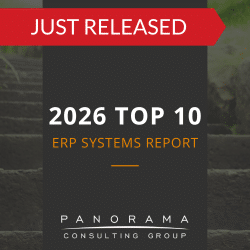ERP systems can be a bear to implement regardless of whether the organization is a private, domestic corporation with a few offices or a public, multi-national spread across dozens of countries. But, for obvious reasons, the latter of the two has some very real and quite complicated pain-points that often prevent executives from moving forward with the initiative. Following are the key considerations global corporations must weigh when determining whether or not to buy and implement company-wide ERP software:
- How important is it to have consistent financial processes and reporting?
- How much time, effort and money is being wasted by having to manually collect and consolidate each outpost’s reports?
- How much control is the company ceding by allowing each outpost to use a different system?
- How is the current system handling government regulations across the different countries? In a best-case scenario, how would a new ERP system handle regulations?
- How will the different outposts handle organizational change management efforts around the new system? What are the differences in management style, culture and labor skills at each outpost?
- How will the different outposts be asked to contribute to the overall design of the ERP system?
- How will the different outposts handle data entry and data integration?
- How will an ERP implementation affect power structures within the corporation on a whole? How will these changes affect profitability, efficiency, trust and morale?
- How will the system be customized to address individual subsidiary’s needs?
- How will the organization address communications across the different outposts before, during and after the ERP implementation?













